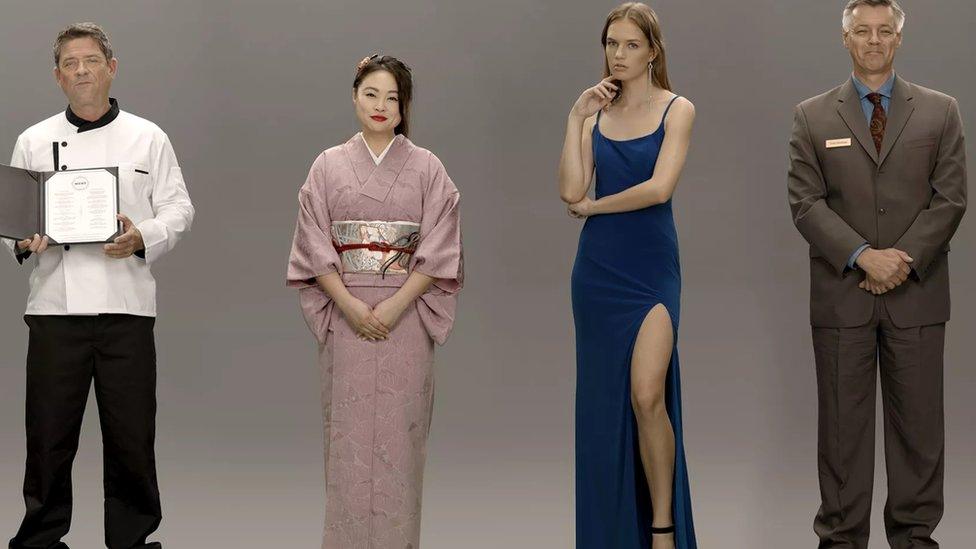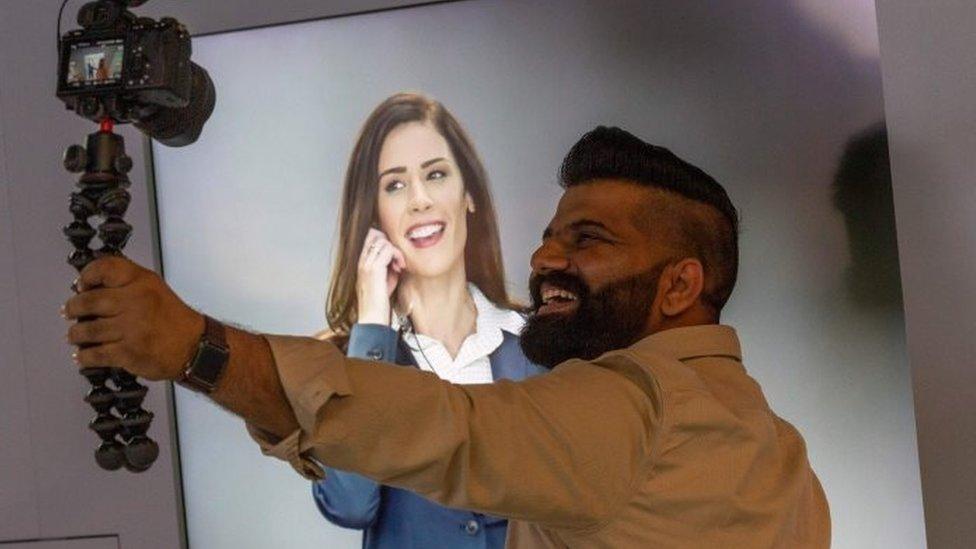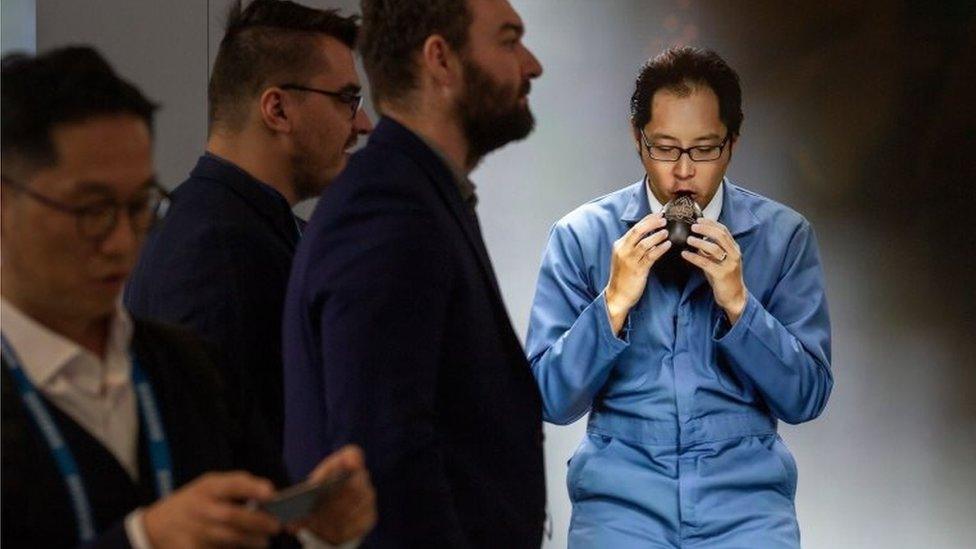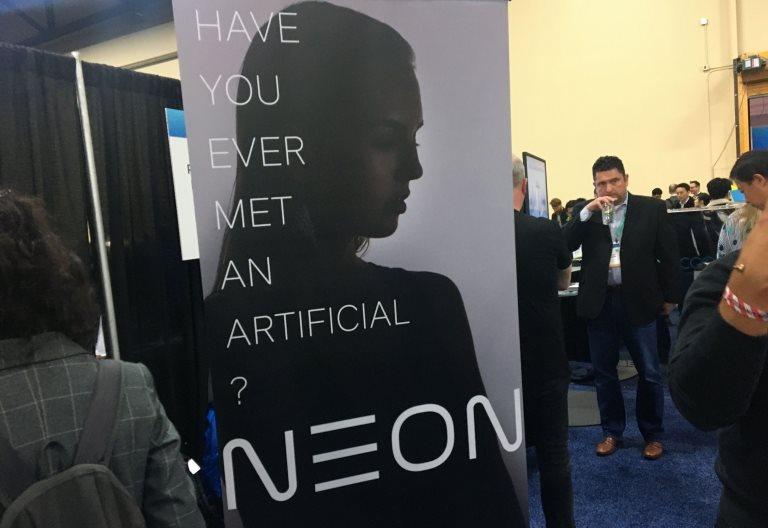CES 2020: Neon's artificial humans 'don't live up to hype'
- Published

Neon designs avatars to be new, virtual "friends"
"Artificial humans" - virtual characters - have been shown off by Samsung-backed start-up Neon at the CES tech show in Las Vegas.
Neon says it intends its virtual characters to act like digital "friends".
However, one tech industry analyst told the BBC the demonstration failed to impress him.
Ben Wood of CCS Insight said: "It was not the revolution that I was expecting."
There had been great interest in Neon after the California-based outfit ran a viral teaser campaign across social media in the lead-up to the expo.

Visitors to Neon's CES booth can pose with the digital avatars
Reddit users subsequently found links to videos of the characters hidden on the firm's website.
Those have since been removed, but Neon has been showcasing some of its life-size "artificial humans" to CES attendees.
Its show exhibit features a row of large screens, on which the animated characters are displayed, external.
Allow X content?
This article contains content provided by X. We ask for your permission before anything is loaded, as they may be using cookies and other technologies. You may want to read X’s cookie policy, external and privacy policy, external before accepting. To view this content choose ‘accept and continue’.
'High expectations'
Neon's chief executive Pranav Mistry claimed the digital avatars represent a new life-form.
"There are millions of species on our planet and we hope to add one more," Mr Mistry told the press.

One of the animations plays music to passersby while another does magic
He added that they have the ability to show emotions and intelligence, and can speak a wide range of languages.
But Mr Wood said the virtual beings had the appearance of being little more than short video clips of real people.
"They could get people to shake their head or do a selfie pose or whatever but that's the sort of thing you could pre-program in a video of an actor," said Mr Wood.
"Expectations were exceedingly high. On visiting, it was hard to get excited at this stage."

Neon had run a series of teaser images in advance of CES
Larry Dignan at news site ZDNet also had reservations.
He wrote that Neon's creations might be useful, external if deployed in public to greet shoppers or tourists.
But he added that giving them a "brain" would be a bigger challenge than making them "picture-perfect".
Neon has not yet revealed where the virtual characters will first appear in public.